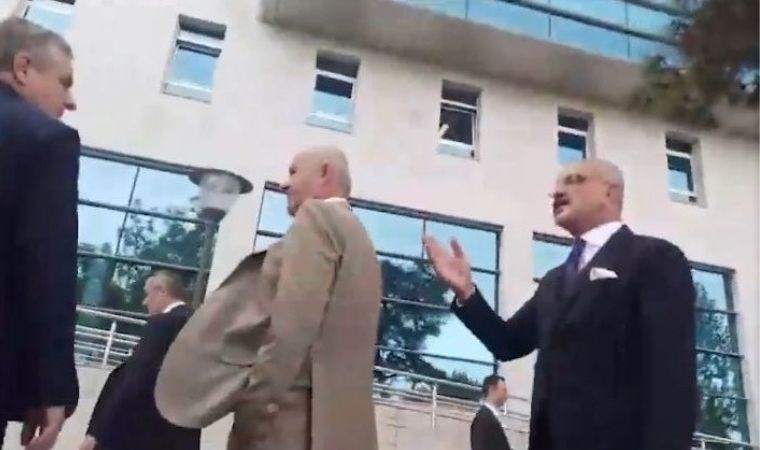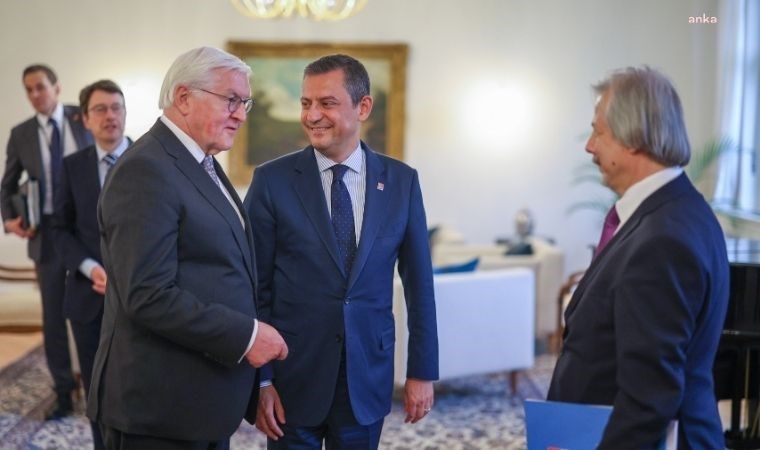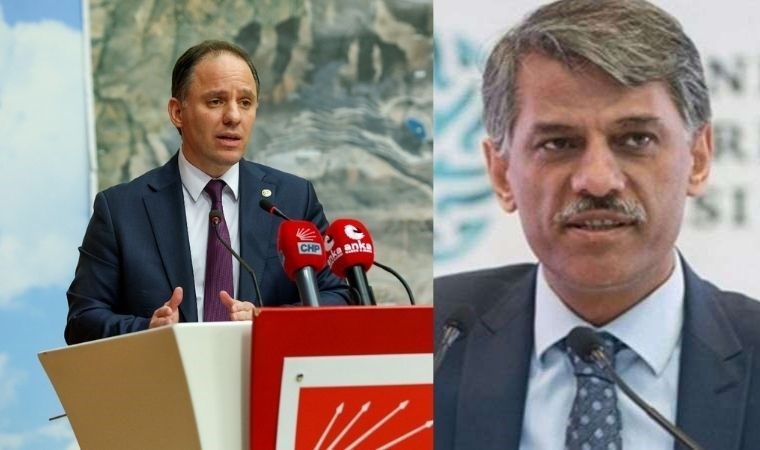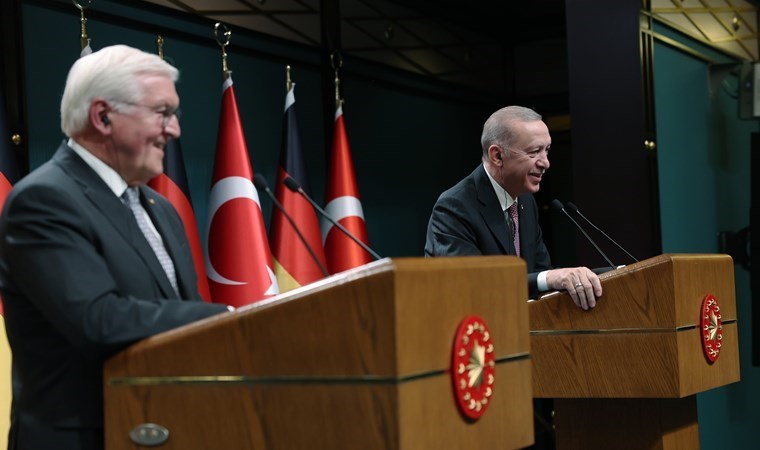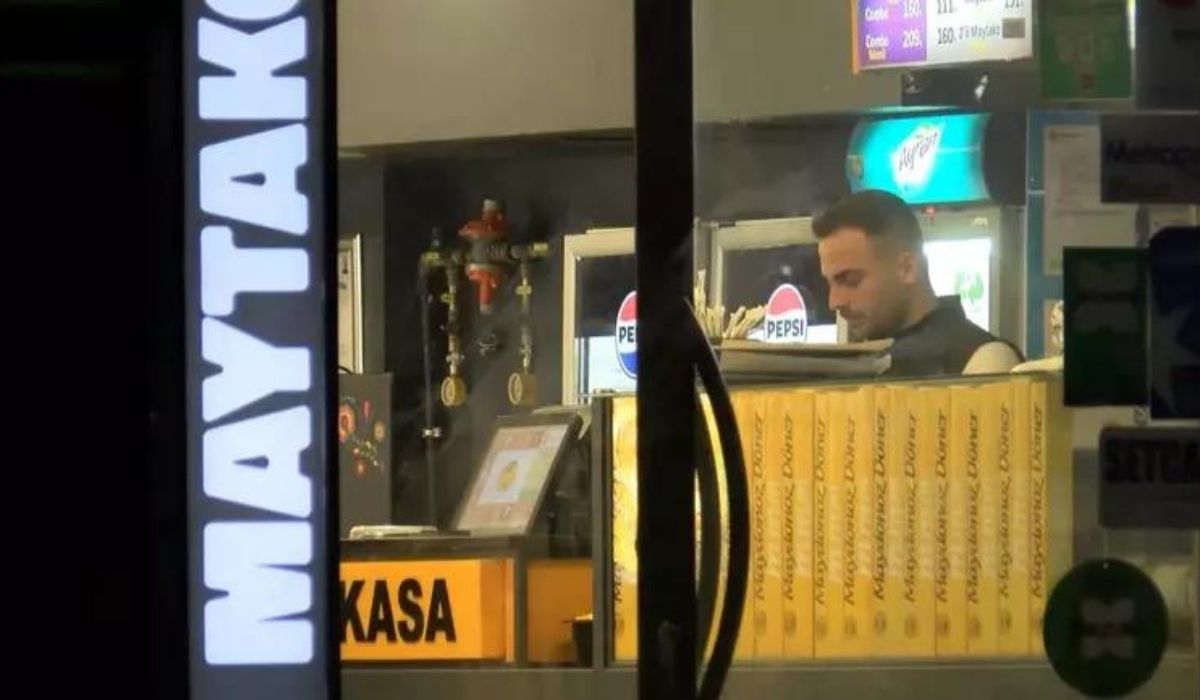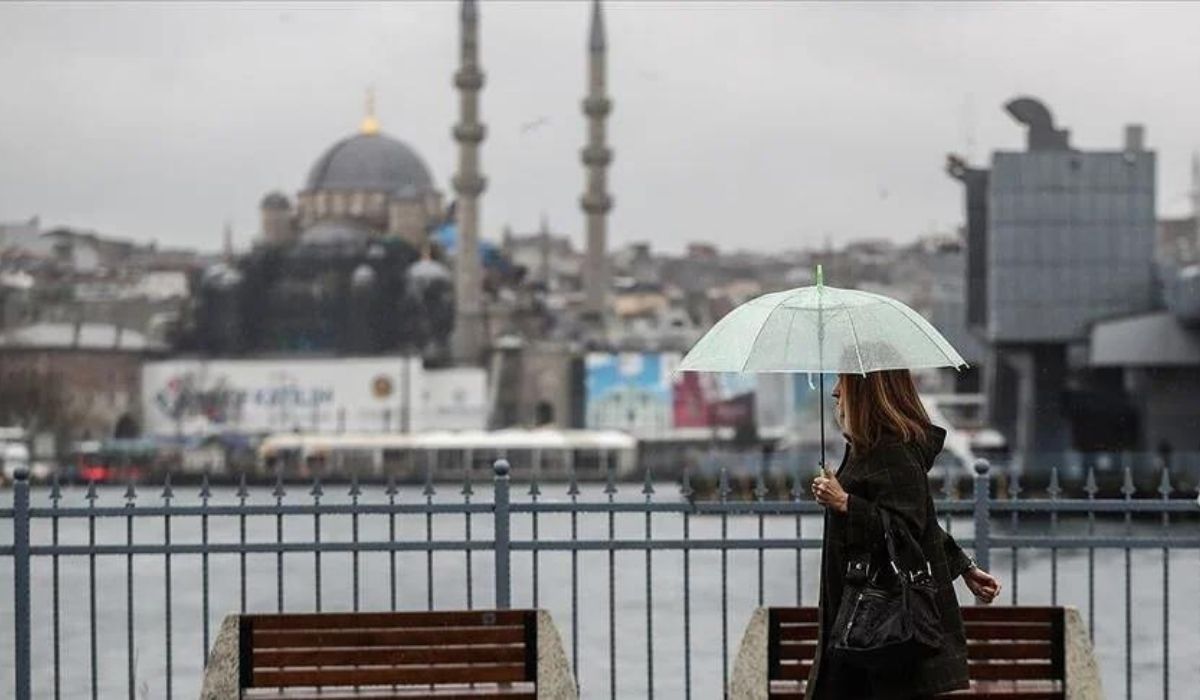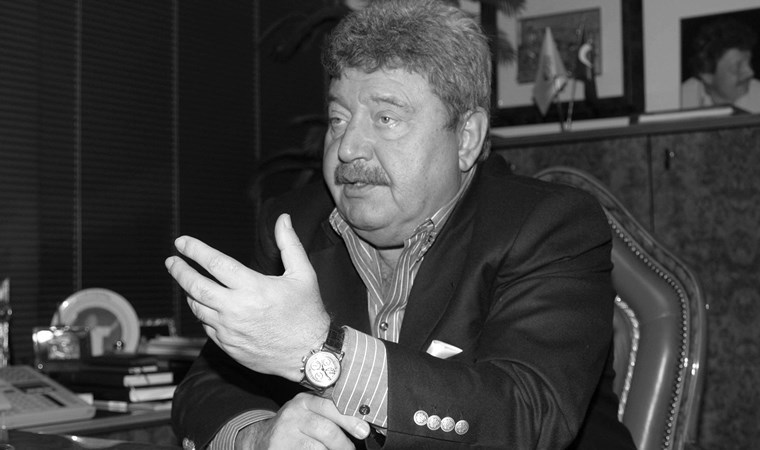Selin Sayek Böke speaks to Cumhuriyet for the first time since her resignation: The street is a right
Selin Sayek Böke, who has stepped down as both party spokesperson and deputy general chair at a time at which internal debate is going on in the CHP, says her resignation was a political objection. Böke said, ‘The CHP needs to be a political alternative that has to be the voice of those on the secular, democratic left and the oppressed.’

At a time at which millions of citizens continue to balk at the legitimacy of the 16 April referendum, the debate that started in the CHP assumed a different dimension with the resignation of party spokesperson Selin Sayek Böke. Böke’s stepping down from membership of the Central Executive Committee and deputy general chairship as well as from the post of spokesperson can be read as a relinquishing of the posts to which she was appointed and a snub to administration. The hasty correction elicited by her reply, ‘All options are on the table’ to a question about the idea of extra-parliamentary action to which she did not refer appears to be the outward reason for her resignation.
In the interview I conducted with her as Party Assembly member and Izmir MP, speaking carefully and cautiously, she gave insights into the process of parting ways with the party administration. She stressed that the result of the 16 April election was cause for hope and that this ‘force’ could still rally.
- Did the criticism and reasons contained in your resignation announcement come as a surprise for General Chair Kılıçdaroğlu and party administration?
What I submitted for processing was a standard two-line letter of resignation. But, I had conveyed my political thinking that lay behind the letter and my objections that had come this far to the esteemed general chair both at our meeting on that day and on various occasions. So, there was no surprise in the text.
- You put it so bluntly.
With great ease. Nothing was a surprise. It is a summary of the objections that I had conveyed both at the Central Executive Committee and in my meetings with the esteemed general chair.
- So, these must have been the breaking points in this process leading to resignation.
Everything did not happen that day, for sure. But, to lay something down like a calendar and put it so bluntly does not fit in with the nature of politics. Politics is something fluid. Let us say at every critical turning point at which I have thought of the politics and voters I represent and my need to be their voice, I have raised objections.
- Was parliamentary immunity one of these turning points?
Parliamentary immunity was a process over which each of us voted in line with our consciences. My conscience called on me to say ‘no’ at that point. I felt absolutely no hesitation in voicing my conviction that our party’s overall preference should for ‘no’ either at the Central Executive Committee or at meetings I had until the last moment with the esteemed general chair.
- Had the CHP not supported ‘yes’, how would politics and parliament shape up today?
I think Turkish politics would have evolved differently. But, I do not find it correct to interpret politics saying, ‘If that had not happened, what would have been?’ over decisions that are taken. We must look to the future asking what we need to do tomorrow.
- You criticise certain postures by your party following 16 April.
We told the millions to put all their personal concerns to one side and without fail go to the polls, even if they were ill. We said, ‘If you are absent, democracy is incomplete.’ The task incumbent on us is to stand by the conviction they have expressed with the same decisiveness and insistence. I passed on this view of mine. The CHP needs to be a political alternative that has to be the voice of those on the secular, democratic left in opposition to the politics advanced by the AKP and the oppressed under the current order. I have voiced my objection at every turning point at which I think this alternative has not been set out forcefully enough.
- Was the comment about the CHP delegitimising illegitimate votes in your statement critical?
We saw millions who, in the face of all the intimidation, managed to speak out for themselves with confidence. Our prior duty is not to persuade those other than these millions. It is to stand up for these millions. It was precisely because this feeling was engendered that I felt doubt. After all, I kept on saying at referendum meetings that ‘no’ was not an issue that only political parties could argue for. It was a platform on which politics and democracy could organise outside the realm of individuals’ political parties and political parties could form an alliance. So, if you are absent, and you are unable to exercise your constitutional democratic right on the street, democracy is incomplete.
- In the comment you made from the rostrum on 19 April you said that all options were on the table. A ‘correction’ came immediately. You did not speak of extra-parliamentary activity but did the problem arise in the answer given to the question?
Yes, I did not use this term, but it was asked as a question. And I replied on behalf of my party to the question with great political decisiveness and political confidence: ‘Whatever is called for to bring about the will of the millions, the CHP will keep all alternatives on the table and assess them.’ This was important, because this was not a final decision in political terms, it involved political determination to defend the conviction. The sense behind this ‘no’ of the millions was: ‘Politicians, do whatever is called for to stand up for “no”.’ And this was political decisiveness whereby I said, ‘Don’t worry, we will do what is called for.’
- When coming onto the rostrum, had you obtained clear authorisation that you would say, ‘All alternatives are on the table,’ or did you take the initiative?
There was no final political decision that had been taken at the Central Executive Committee and, as yet, in the party’s decision-taking organs. So, I came onto that rostrum in situation in which all options were still on the table. I was certainly authorised to give voice to political decisiveness and we were in agreement over that.
- What went on and what did you feel with the comment about extra-parliamentarianism being denied? After all, it created a stir among the masses after you made that comment.
Above all, at a very critical time, with the Supreme Election Council having convened. My objection to this is not actually just that a correction was made and my position as party spokesperson was placed in question. There are two things here. The position of party spokesperson is a very valuable and important institution for a political party. I was concerned that moves that would undermine trust in it would lead to institutional degradation. But, at the same time, while functioning as spokesperson, I also thought that policies which negated the political decisiveness I was putting forward on behalf of the party, and on top of that the political posture that it conveyed while the Supreme Election Council meeting was in progress, were wrong.
- The hasty ‘correction’ was influential in the parting of ways, wasn’t it?
Yes, it was one of the components. There was a sense of responsibility there. It is a big party in great big Turkey. And I am that big party’s spokesperson. It was an unacceptable thing for the institution of party spokesperson that I was personally representing to be tainted with such uncertainty. In the interests of protecting that institution it was more correct for me personally to step down rather than maintain my post.
- There is also the opinion in your resignation letter that you found the parliamentary fight to be inadequate.
The parliamentary fight must be redefined under the new conditions. But, I think that a political fight that stops at this is inadequate to oppose such a fundamental regime change. I think you have to stand up for a new political platform that reminds those who make their presence felt when it comes to exercising their democratic right in the street that the street is not to be feared and is not synonymous with terrorism but is a constitutional right and the most basic definer of democracy.
- Is it wrong to speak about 2019 already?
Let politics talk about a road map for 2019 internally, because the road leading to 2019 has begun. But, this should not be aired in public. The task that falls to us today is to delay for as long as possible coming out in acceptance of a state of affairs that we do not accept. My objection is a political objection lodged on behalf of millions. Discussion over a political road map as if an illegitimate result were accepted has robbed this political conviction of its vitality in my view. But it is not too late.
- What needs to happen?
To frame 2019 as being a referendum. We must advance the claim that we are going to take power from the Palace and give it to the people in a new referendum. The president in 2019 must work to return Turkey to the parliamentary system and to take speedy steps that will construct a powerful parliament. He or she will abolish his or her own powers and take Turkey back to the parliamentary system.
- What kind of approach is the approach to governance that you do not see fit to be part of?
A dichotomy has to be drawn. This is also an objection to political decisions and the manner in which those political decisions are taken. The definition of alternative politics that the CHP must set out in contradistinction to the AKP must basically and above all be one that stands by the mass group that we represent. We must initially stand together in a tight embrace to enable us to then address people who think otherwise. We can do this by speaking our own language, not that of others. This is probably the source of the different readings that emerge.
- Not here, I suppose.
There is a view that seventy percent of the electorate in Turkey leans to the right and if political office is to be achieved it can only be achieved by resonating with them. I respect this view, but do not subscribe to it. What will lead to political office will be to clearly set out the cause that we believe in.
The second issue is that, as a social democratic party, we have the opportunity to express different views internally in a democratic manner. But, for some time, the capacity of my views to affect final decisions has become diminished. Of late, I have seen the objections I have raised on democratic platforms not evolving into final decisions.
- While initially doing so?
I had the opportunity of performing a duty that every CHP member wants to do. I did this job honourably and aware of the responsibility entailed. For two years and eight months. Initially, I was instrumental in bringing about change in the way administration was handled. In concrete terms, I helped to facilitate a change that transformed language in Turkey that had become trapped in identity politics into a political language that spoke of production and distribution economics. We enabled the minimum wage to be spoken of and, moreover, politics to emerge that secured an increase in the minimum wage in Turkey.
- Did the inability of your views to affect decisions create difficulty?
Yes. In a setting in which your view does not affect the final political result, acting as spokesperson for this is inconsistent with political honesty. I think this is also unfair to administration. In the final analysis, the esteemed general chair’s primary right is to work alongside people who are capable of managing procedures in accordance with his own preferences and his own political views. If a diagnosis is called for, with political views diverging to such an extent, I considered it correct to step down in the interests of protecting the party’s institutional structure.
- Terms like emotional resentfulness flew around.
I am laughing, but not emotionally (laughter). It is wrong for politics to be discussed as if they were a personal issue. There is a need for discussion, not about leadership of our party, but the political views that are to inform campaigning from now on. The mindset that limits this debate to emotionality is precisely one that says, ‘Let’s not debate politics.’ I did not object in an emotional frame of mind and feeling prickly. I resigned out of a political decision. If we are going to talk, let us talk about that political objection.
- You have stepped down from the posts you were appointed to, and the ones you were elected to continue.
The CHP is part of my family. There is a Party Assembly which I entered with the most votes at the last congress and to which our delegates elected me. Then there is my post as a member of parliament to which I was elected so as to represent our electorate. In both of these, my responsibilities, fighting spirit and resistance continue. I am not leaving politics, or the CHP. On the contrary, I am making space for the CHP leadership and administration for there to be a style of administration in which they will feel more comfortable politically. I have also expressed my intention on internal party democratic platforms to conduct the politics that my delegates and voters expect.
- What kind of feedback has there been?
Some have voiced support, and some objection. But I can say with a clear conscience that, among the public, the champions of democracy who voted ‘no’ have expressed the hope that I will be their voice. That is, this decision has spoken for some people. This is what I have understood.
- Are you a candidate for general chair?
I am not. This resignation has nothing to do with the CHP’s congress procedures. I have no intention of being a candidate. What the CHP needs is not a leadership debate in terms of people, but there must debate over the party’s future in terms of political views. The ordinary congress procedures that will permit this have started in any case. The CHP has absolutely no need for extraordinary congress procedures. In ordinary congress procedures, there is a need for political debate starting from the party base. This is what will be healthy, because the ordinary congress means enabling all of the party’s organs and participants at all levels to speak on their own platforms.
- Can steps simultaneously be taken that will transform the expectations of the ‘no’ voting masses?
Very easily, because the debate in political terms will in fact be over methods for delegitimising the illegitimate. The important thing is for the party to be able to debate not under the policy of, ‘You get on with it while I sit down’ but ‘What will be the policies to which I give direction while seated?’ This is what distinguishes a social democratic party from the others. The public support elicited by this resignation also shows this.
- There is material criticism in the text placing emphasis on the ‘imposition of disciplinary procedures.’
I have made known my criticisms over the comments that Mr Fikri Sağlar made and the platform on which he made them. I have also expressed them in discussions within our party committees. In fact, the Central Executive Committee resolved unanimously that examination should be conducted in the Party Assembly. As things stacked up, I thought it would be appropriate for the Party Assembly to examine the situation. I intimated that it was wrong at that stage to seek definitive expulsion. That is also how I voted at the Party Assembly. I voted ‘no’.
- Certain people seemed to get the wrong end of the stick. It was as though you wanted Sağlar’s expulsion.
Where things get bogged down is that the resolution to emerge unanimously from the Central Executive Committee which I announced as party spokesperson was the Central Executive Committee’s request for the Party Assembly to conduct an examination. This is what there was unanimity over. I voted ‘no’ when it came to seeking definitive expulsion.

En Çok Okunan Haberler
-
 'Müzakere edilmez!'
'Müzakere edilmez!'
-
 ‘Haddini bilsin, tepemin tasını attırmasın’
‘Haddini bilsin, tepemin tasını attırmasın’
-
 'Bir milletvekilliğine her şeyi sattın'
'Bir milletvekilliğine her şeyi sattın'
-
 CHP’nin yükselişi sürüyor
CHP’nin yükselişi sürüyor
-
 Neler konuşuldu?
Neler konuşuldu?
-
 'AK Partili bakan yardımcısının toplam maaşı...'
'AK Partili bakan yardımcısının toplam maaşı...'
-
 Mehmet Ali Yılmaz'ın ailesinden açıklama
Mehmet Ali Yılmaz'ın ailesinden açıklama
-
 Son mesai saatinde 4.5 milyonluk fatura kesilmiş
Son mesai saatinde 4.5 milyonluk fatura kesilmiş
-
 Erdoğan’dan ‘İsrail’le ticaret’ çıkışı!
Erdoğan’dan ‘İsrail’le ticaret’ çıkışı!
-
 Çorlu tren katliamı davasında karar!
Çorlu tren katliamı davasında karar!


